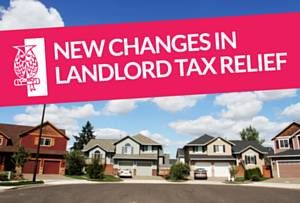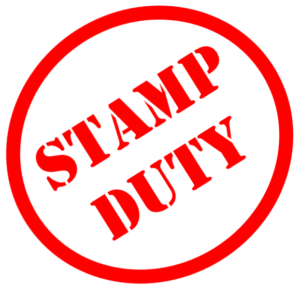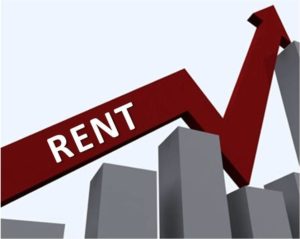 We have the pleasure of presenting a special market report written by UK estate agent Choices founder and chairman Simon Shinerock. Simon started Choices in 1989 and is a leading expert in UK property.
We have the pleasure of presenting a special market report written by UK estate agent Choices founder and chairman Simon Shinerock. Simon started Choices in 1989 and is a leading expert in UK property.
Choices has won the Best Overall Agent awards for 2013, 2014 & 2015 from Allagents.co.uk. Allagents is the UK’s largest customer review website for the property industry so Choices is definitely doing something right.
With the recent change in the tax regime Simon has compiled a lengthy report on what the changes mean for the higher rate tax paying landlord. This report also focuses on the top 30 mistakes made by landlords and how to avoid them. So if you own a rental property this report is required reading!
Click Here To ViewThe Choices Website
Everything The (Higher Rate Tax Paying) Landlord Needs to Know (Plus the 30 most common mistakes made by Landlords and how to avoid them)
The reason I have written this report is in response to the constant requests I have had from clients and friends to simply explain the new tax regime and how it will affect higher rate taxpayers existing and future investment properties.
There is no doubt that the sole purpose of the system that now exists is to reduce the returns of the buy to let investor in general and the higher rate tax payer in particular and those who ignore these changes will be landed with an excessive tax bill that with the right planning could be avoided.
So rather than simply explain the new regime, I have gone as far as to suggest a strategy which can avoid this attack and preserve and build the value of your buy to let portfolio in this market.
In addition, while writing I have also taken the opportunity of using some of my experience in buy to let, financial planning and property management to record the top 30 mistakes made by private landlords and how to avoid them, this list is included at the end of this report.

Image courtesy of boococks.co.uk
Since George Osborne declared war on the private landlord and in particular the higher rate tax paying landlord, it has become essential to understand how the system works and structure your investments accordingly.
Most people will know there is now a 3% penal stamp duty bill to pay on buy to let property and second homes. This is on top of the graduated rates which already penalize expensive property taking the highest rate to 15%.
However what most people don’t know is that if you buy six properties at a time for £150K each or less, you can reduce your stamp duty bill to 1%. This legitimate stamp duty exception is called Multiple Dwellings Relief or MDR.
Let’s look at this saving in a bit more detail.
The current stamp duty rates in England, Wales and Northern Ireland are shown in the table below:
Stamp Duty Rates
Band Normal Rate Additional Property
less than £125k 0% 3%*
£125k to £250k 2% 5%
£250k to £925k 5% 8%
£925k to £1.5m 10% 13%
rest over £1.5m 12% 15%
For a single property purchase no SDLT will be paid on the first £125,000. Between £125,000 and £250,000 buyers will pay 2% within this band, 5% on the portion between £250,000 and £925,000, 10% within the next band up to £1.5 million and 12% over that. For additional property, such as buy to let or second homes, there is now a 3% surcharge applied to all bands. * For additional property the first £40k will attract 0% tax. From £40k to £125K the rate will be 3% on full purchase price.

Image courtesy of PractiseBlog.co.uk
Stamp duty on Commercial property – Multiple Dwellings Relief
The important thing to know is that if you buy six or more dwellings (residential properties) either freehold or on long leases, you can qualify for multiple dwellings relief. The effect of MDR is to reduce the rate of stamp duty to the rate you would pay on the average price of each property in the transaction, subject to a minimum of 1%. Provided the average price is £150K or less the 1% rate will apply.
What this means is at the extreme end is that instead of paying £62000 in stamp duty to buy a £900000 luxury flat in London you could buy six luxury flats somewhere else for £150K each and pay £9K a saving of £53000.
Bear in mind that stamp duty has to be paid from taxable income so a higher rate tax payer would have to earn around £100K gross to get that £530000 net. Assume a 3% yield on the London apartment and it will take nearly four years rent just to pay the stamp duty bill!
As you can see, commercial rates are much lower than residential rates, especially if you buy a property for up to £150K. This is a compelling reason to buy six or more apartments in a low-cost high yield area rather than a single apartment in a high cost low yield one. It is also a reason for those with enough deposit to buy six low-cost properties at a time. This loophole will definitely hasten the flight of buy to let money into higher yield territory and increased demand means higher capital growth.
However, quite apart from stamp duty considerations, from 2020 higher rate tax payers will lose their higher rate tax relief on mortgage interest, in extreme cases this could lead to paying tax on a loss! There is currently a legal challenge being mounted to this ridiculous and unprecedented situation by a group of Landlords who believe in is unfair and unconstitutional to impose tax on losses and that buy to let income and expenses should continue to be treated in the same way as any other business.
 However, although I wish this group well, there is a way to retain full tax relief on mortgage interest if you buy property through a company. Practically speaking it is essential to understand what you can do now to mitigate this loss of tax relief if, as seems likely, it goes ahead as planned.
However, although I wish this group well, there is a way to retain full tax relief on mortgage interest if you buy property through a company. Practically speaking it is essential to understand what you can do now to mitigate this loss of tax relief if, as seems likely, it goes ahead as planned.
In table two I compare the returns that would be achieved by an individual higher rate tax payer who bought a property with a mortgage after 2020 with the returns they would achieve if they invested through a limited company, I have given two examples of interest rates but as you can see, the key point is that the higher the interest rate the worse it gets for an individual higher rate tax payer.
In a more extreme example, let’s say you bought a property for £500000 and rented it for £25K a year, let’s say your profit before any mortgage interest was £20K. Right now if you incurred £20K mortgage interest, as you had broken even there would be no tax for you to pay. However, in this example, after 2020, you would only be able to claim the basic rate of tax relief on the interest you paid, currently 20%, which means you would be charged the extra 25%, £5K of extra tax meaning you are now making a loss purely because of tax.
Another example would be a property on which a 45% tax payer has made a paper profit of £10K after interest charges of £10K, clearly they will have to pay £4.5K tax. However, because after 2020 they will only be able to claim basic rate tax relief on mortgage interest, there will be an additional £2.5K in tax to pay totalling £7K, meaning they are actually paying a marginal rate of tax of 70% on their profit, hardy worth the hassle!
 So it would appear that, for higher rate taxpayers who intend to use mortgages this new regime is virtually untenable in many circumstances. The true penal nature of the new regime is being disguised at the moment by ultra low-interest rates but when they rise the full horror of the situation will be revealed.
So it would appear that, for higher rate taxpayers who intend to use mortgages this new regime is virtually untenable in many circumstances. The true penal nature of the new regime is being disguised at the moment by ultra low-interest rates but when they rise the full horror of the situation will be revealed.
There is a solution though, limited companies will be far more effective vehicles to purchase buy to let property under the new regime because limited companies will continue to benefit from full tax relief on mortgage interest. However there are further considerations, like what happens when you want to sell your properties and how much interest will you be charged if you take out a mortgage through a company?
The biggest problem occurs where you want to sell a single property within a company because the company will pay capital gains and you will still be liable for income tax on money you take out, raising the spectre of double taxation. Of course this does not occur if you sell the entire company. This is a strong reason buy six low-cost properties at a time, claiming MDR and to set up a company for each purchase, the smaller the value of the company the easier it will be to sell.
I foresee a new market developing for these companies which will have many advantages as far as investments are concerned. Not only can mortgage interest be claimed in full as an expense, income can be left to roll up in the company free of further tax until it is taken by an individual, at this time there is no double taxation to consider. Also, property investment companies like these may have other advantages in the future should the owner choose to reside abroad for example.
When I started writing this report I had hoped to really simplify the situation for higher rate tax payers but I have to admit to only achieving half my objective. The half which I have achieved is to clarify what higher rate tax payers should be doing if they want to buy residential property investments. This is to buy 6 low-cost units at a time, claim MDR and if any borrowing is involved, use a limited company as the vehicle, one for each bulk purchase.

Image coutesy of CitrusContent.com
Where I haven’t achieved my goal is in simplifying the new tax rules which are actually very complicated, unfair and hard to fully get your head around. This is because we are all used to the idea of only being taxed in a profit, not a loss and this new regime raises the possibility that a paper profit can become a loss for a higher rate tax payer in certain very likely and foreseeable circumstances. For those who end up caught in this trap I can see things getting very unpleasant, much better to take action now before it is too late and adopt a strategy that makes the most of the new regime.
Finally, let’s consider what to do if you are a higher rate taxpayer and you already own properties on which you have mortgages. The obvious thing to do would be to transfer them into a limited company but unfortunately it may not be as simple as that. Firstly there could be stamp duty to pay and secondly you would need the cooperation of your lender. From the research I have done to date it would seem possible for some landlords to get relief from stamp duty if they can show they have run their portfolio as a business. There are also some signs that lenders are warming to the idea of corporate mortgages.
So there it is, everything the higher rate tax payer needs to know, the remaining question is what to do! We can help you optimise your strategy and introduce you to the right professional advisors if your situation merits it. This new regime is not ideal that’s true but residential property remains an attractive investment option to many people and can still make sense if you go about it in the right way, whatever your situation we are here to help.
Click Here To Visit Choices Estate Agents
The 30 most common mistakes made by Landlords and how to avoid them

Image courtesy of Allpodland.com
Whether you are a higher rate tax payer or not there is more to getting the most out of your property portfolio than just tax relief. The difference between making the right decisions and the wrong ones can be simply vast and can have vast consequences for your financial future and well-being.
I have personally owned over 50 rental properties. More to the point my company has managed over 6000 properties on behalf of Landlords all over the country.
In addition, since 2000 I have built one of the most successful and established property investment buyers agencies in the UK, with over 20,000 paid subscribers on whose behalf we have purchased thousands of investment properties.
It is from this position of experience and achievement that I have compiled this list. At the very least you should read it and benefit from the lessons it contains. Of course my motive for writing it is to persuade you that, in all probability, you are better off letting us take care of your existing properties and help you build your property investment portfolio in the future, rather than going it alone.
Before you plunge in, I should emphasise that this list is far from complete, nor does it give a three-dimensional feel for what is the least and the worst of the things that can go wrong.
With all these things, chance plays its part, lady luck can be with you or against you. What this means is you can do everything right and still end up in a mess, or you can do everything wrong and come up smelling of roses.
The thing you have to consider is this. If you were shown a way of taking chance out of the equation and guaranteeing a good outcome would you take it? Or would you look a gift horse in the mouth?
1: Only buying in their own back yard

Image courtesy of wheretobuyinvestmentproperties.com.au
There are property hotspots and cold spots. The chances are that you don’t live in either, even if you do live in a hotspot, it may not be your price point, the yield might be too low, or it might be that there just isn’t enough supply to give you a fair chance of. Building your portfolio.
We run property investment seminars almost every week, have done for years. One of the things we do is ask the audience where they live and if they own any investment property there. Inevitably many do own property near where they live and we make a list in a flip chart of all the different places. Then, using freely available data we add the different rental yields that apply as well as capital growth over the past five years. What we end up with is a lucky winner and a sad loser but here’s the thing, there is often no-one who gets anywhere near the returns available in the best property hotspots, makes you think doesn’t it?
If you carry on reading you will notice a theme, the theme is objectivity. I will refer to this again and again, you are buying as an investment, not to live and if there was one master mistake that landlords make when buying investment property, it is to allow their subjective feelings to ruin their judgement.
2: Buying the wrong type of property
Most people like big good-looking well located houses. Most high yielding properties are ugly ducklings, they may be conveniently located but their surroundings might not pass a cosmetic test. The thing is that when you rent you don’t put that much emphasis on what a property or surrounding properties look like. As a renter you are focused on more practical issues like accommodation, proximity to services and schools.
As a result good-looking properties which cost more don’t tend to yield any more rent. In addition the good-looking properties are less likely to come up at a below market value price. However it is relatively easy to tart up an ugly property and enhance its resale value. In general ugly properties go up in value at the same rate as their good-looking neighbours and have more scope for added value.
 3: Over paying
3: Over paying
The over paying problem is linked to many others. People over pay in order to buy into a specific area. They get sucked into the hype of an attractive new build development. they fail to do their due diligence, they lack the experience or ability to negotiate a good price when up against an experienced estate agent.
It is not true that price is the only consideration when buying a property but if all other factors are equal then clearly it is far better to pay a below market value price that full market value. In the old days we set 20% below true market value as our litmus test of a properties suitability as an investment. Nowadays, with such a shortage of supply and ultra low-interest rates, it’s not that simple but there are still bargains to be had if you know where to look. There are always exceptions to any rule and some developments for example are set to grow in value from day one so its more a question of securing them than getting a big discount but these types of development are exceptions not the rule.
In order to find property that meets these criteria you need to spread a large net very widely, we have hundreds of contacts with property introducers and agents who come to us when they have a distressed vendor who needs to sell fast. Our market presence means we are far more likely to come across property bargains than someone looking part-time with no contacts to start with.
4: Failing to understand the difference between capital growth and income
In the old days prior to the assured short hold tenancy the rental property market was very small. However there has always been a market for super prime London property and in those days agents would advise investors to expect rent to cover expenses and no more. This meant investors would get a zero or even a negative yield! Now these super prime properties may have seemed like terrible investments in terms of yield but they were brilliant when it came to capital growth.
When the letting market took off in the mid nineties, what made it possible was positive yields caused by low prices and falling interest rates. This is because most people need a positive yield in order to service their mortgage, which is why the changes to tax relief are so unfair on higher rate taxpayers. In 2007 the credit crunch nearly sent thousands of over committed landlords out of business. What saved them was the very low-interest rates that have been used to prop up our failing financial system ever since.
If you have a portfolio of investment property or you are thinking of growing one, bear in mind that you will only benefit from long-term capital growth if you still own the property. This won’t happen if you have over committed yourself and can’t afford to pay the mortgage when rates go up. This is a long-term business and you have to plan carefully from a position of knowledge, knowledge we have and can impart to you when you become a client.
5: Underestimating maintenance costs

Image courtesy of property24.com
It is human nature to be greedy and never is this more evident than when we are investing. We want the lowest price and the biggest return, we obsessively look at the value of our investments and add up the equity to remind our selves how well we are doing.
The thing is you can only spend equity when you sell your investments, until then what you have to spend is the difference between your income and your expenses. it is therefore absolutely vital to accurately forecast and predict what your expenses are likely to be in order to know what income you will have left to spend.
Houses need redecorating and maintaining, furniture and appliances wear out, these things all cost money and unless you put aside a reserve to pay for these recurring expenses then you will suffer the consequences. These consequences may not be evident straight away, you might think you are getting away with it for a while but then suddenly get hit with a big problem. For example, you may get lumbered with a bad tenant because your agent had no choice but let to a poor prospect as they were the only one who would put up with the worn out carpet, bed, decor, you get the picture.
Underspending on a property can be a very costly mistake, striking the balance between quality and practicality is essential to long-term success. If you don’t have the experience or the acumen to achieve that balance then once again, our services add more value than they take away.
6: Not providing for void periods
Not providing for void periods all links in with overestimating income and underestimating costs.The most important thing you can do once you have rented your property out is to plan your expectations realistically. There is no exact formula to calculate how long a void period you will suffer. Again it is partly down to luck and circumstance but mostly down to planning and professionalism. If you present the property well, market it correctly and set the rent right then the likelihood is that voids will be short. Likewise, if you don’t pay attention to the basics then they are likely to be long.
The common theme here is ‘pay attention to the basics’ if you do then all these problems either melt away or are less severe when they occur. If you are really unlucky it is possible to get a bad tenant even if you have done everything right but it is a lot less likely.
To give a health analogy, imagine an overweight alcoholic smoker and compare their chances of getting sick with a slim fit non smoker who eats well and enjoys a glass of red wine with their meals. It is possible that the fit individual will get sick and the unfit one won’t but the odds are against it. If you extend this analogy a bit further, the fit guy would still be well advised to take out health insurance just in case. However if the unfit guy wanted health insurance, chances are no-one would touch them, you get the picture I’m sure.
 7: Choosing the wrong tenant
7: Choosing the wrong tenant
Choosing the wrong tenant could be said to be the route cause of most problems but this is an over simplification. Wrong tenants come on a scale of one to ten. Tens are going to be a nightmare whatever you do, if you get one God forbid, get rid of them as soon as you can. Whatever it costs you in legal fees and lost rent will be nothing compared to what it will cost you if you let them stay.
A one on the other hand starts out as a good tenant and becomes bad because of the way they are treated. You see it’s not a one-sided relationship. As a landlord your tenant has the right to expect a certain level of cooperation and reasonable treatment from you. What happens with the one is that you get into a dispute with them over something trivial that escalates into a big deal and they become a bad tenant because you created them.
The best way to avoid a bad tenant is to distance yourself from the selection and management process. It is the cack-handed clumsiness and ignorance of inexperienced Landlords which is the single biggest reason that they run into trouble with their tenants. You have to distance yourself from the situation, you need objectivity and that means using an intermediary who sits between you and your tenants, in other words a middle man like us.
8: Hanging on to the wrong tenant for too long
Although I have already referred to this mistake above I think it is so important it is worth reiterating. Your tenant may be a lovely person, you may have been round for dinner, met their kids etc but if they don’t pay their rent you have a big problem.
It is so easy to succumb to emotional blackmail, they are waiting for a rise, a job offer, an investment to mature etc etc.the thing is that a tenant may be a nice person but if they can’t afford to pay you your rent then they will tell you anything to buy themselves time. What you have to do is distance yourself from all this, never get close in the first place, don’t allow your feelings to get in the way of your business judgement.
Removing a tenant who does not pay as fast as possible is the right thing to do unless you want to become a charity, in which case I applaud your generosity.
9: Renting Privately
It may seem very tempting to rent privately, especially when the market is booming however let me explain why it is always a terrible idea. As I have already explained, renting a property is about playing the law of averages and putting them in your favour. Renting privately puts the law of averages against you, here’s why.
The lettings market is comprised of tenants, the vast majority of whom will only look through an agent. There are some tenants who will look privately and through an agent, not many and there are the tenants who only look privately.
So the chances are that if you let privately it will be to a tenant who only looks privately and there are two reasons why they don’t go through agents. The first is because they want to save money and the second is because they know they won’t pass an agents selection criteria.
To give another analogy, this is a bit like a fisherman having the choice of fishing in a small smelly pond full of putrid infected fish and fishing in a gigantic freshwater lake full of healthy fish, not a difficult choice is it? I will leave it to you to make the connection.
10: Becoming personally involved with your tenants
Once again this point has been alluded to already but it really is one of the biggest mistakes you can make. Once you cross the line with a tenant and they become your friend, you may as well forget maximising the value of your investment.
The best case scenario is that you won’t put the rent up when you should do, the worst is you will be stuck with a non paying friend who you will feel very bad about having to evict. My advice is to avoid this mistake, put an agent between you and your tenant and don’t go there in the first place.
11: Becoming personally involved with your tenants
OMG I’m going to make this point again!
We are all human and when we rent privately we inevitably form a personal relationship with our tenants. Whilst this may seem a good thing and in some cases it is, tenants can become family friends, in the vast majority of cases it’s a very bad thing. You should always remember that renting out your property is a business not a hobby and yet I have heard numerous landlords tell me how they let their properties for fun, for something to do, or something similar.
The old adage ‘ don’t mix business with pleasure’ definitely applies here. If you develop a personal relationship with your tenants the chances are it will reduce your return on investment significantly. This is because you will be less likely to put up the rent with the market, less likely to take money from their security deposit, less likely to take the right amount of deposit, less likely to take proper references or buy a rent guarantee, the list goes on and on. Only by placing a third-party, an agent, between you and your tenants can you ensure that you will receive a market return, a good agent is always worth their fee.

Image courtesy of Photobucket
12: Presenting the property badly
One of the biggest mistakes made by private landlords is in the presentation of their properties. They skimp on cleaning, they don’t replace tired furniture and decoration but it goes further than that. Fundamentally people buy what they see, that’s everyone, even a hard-bitten car dealer will pay more for a clean car than a dirty one although none will admit to it! I have had personal experience of what happens when you present a property badly versus what happens when you stage it professionally and the difference is instant and amazing. Not only will you attract more tenants and achieve a better price, you will let faster to better tenants and experience less voids. Whatever you spend on good presentation will come back to you many times over and it needn’t cost that much up front either, it’s more a question of experience than money and a good agent will make sure this aspect is attended to properly.
13: Taking too little security deposit
It’s so tempting to cut corners when it comes to the security deposit, especially when you have an empty property and you have tenants who want it but just can’t afford the six weeks deposit. However, statistics have proven that the less security deposit you take the more problems you can expect. It’s not just lost rent and damages either, you are also vastly increasing your chances of a dispute and even an eviction.
The lesson is never give in on the security deposit, it is called that for a reason and its your security that is at stake. When asked, most landlords have no idea of the potential or likely cost of an eviction, in our experience, especially where the Landlord is inexperienced, the cost can and does run into many thousands of pounds.
These costs are made up of lost rent, damage to property and legal costs. Worse still a single bad experience of this nature can put you off being a landlord for life and deny you your last opportunity to achieve financial independence and freedom.
14: Not having a professional inventory
These days getting a professional inventory is absolutely vital if you want any chance of claiming on your tenants security deposit when they leave. The days of a court or the disputes service accepting a landlords hand scribbled notes are well and truly over and if you do it yourself, even if you do it really well, you are still unlikely to be able to rely on it because you are not a dispassionate, unbiased third-party, you are the landlord.
So, although the cost of a professional inventory has to be taken into account, it is an essential, not an optional part of the letting process if you want to avoid future disputes. Remember, disputes don’t just cost money, they take time as well and they have a nasty habit of escalating, the best thing to do is avoid them in the first place and one way to reduce the risk of a dispute is to always have a professional inventory going in and coming out.
In today’s society we are used to an ever-increasing burden of bureaucracy and health and safety regulations can be seen as an unwelcome part of this. However, as a landlord you have an immense legal responsibility for the well-being of your tenants and courts have little or no sympathy with landlords who flout these responsibilities. Gas and electrical safety are two of the most obvious responsibilities you have but there are often more. We all lead busy lives and though it’s human to err, forgiveness is not built into the system, another reason to delegate this aspect of buy to let to a professional who has to meet their obligations every day and has the right insurance if things go wrong.

Image courtesy of nzcf.org.nz
15: Ignoring the health and safety regulations
In today’s society we are used to an ever-increasing burden of bureaucracy and health and safety regulations can be seen as an unwelcome part of this. However, as a landlord you have an immense legal responsibility for the well-being of your tenants and courts have little or no sympathy with landlords who flout these responsibilities. Gas and electrical safety are two of the most obvious responsibilities you have but there are often more. We all lead busy lives and though it’s human to err, forgiveness is not built into the system, another reason to delegate this aspect of buy to let to a professional who has to meet their obligations every day and has the right insurance if things go wrong.
16: Being ignorant of the law surrounding lettings
Once again the law is an area full of pitfalls for the unwary landlord and it’s not just health and safety you have to be aware of. These days tenants have powerful rights regarding their deposits which have to be registered correctly, if not there are draconian penalties landlords can be forced to pay.
Tenants are also protected when it comes to unfair evictions. In particular, tenants who complain about the condition of their property cannot be evicted without going through a long drawn out process, this legislation was put in place to prevent ‘revenge evictions’ however it is already being used by unscrupulous tenants to work the system to the detriment of the unwary landlord.
Apart from the statutory rules regarding homes in multiple occupation p, an increasing number of councils are using a loophole to extend the definition of an HMO in order to impose paid licensing requirements on landlords. Whether you believe this to improve the lot of tenants, or more cynically that it is a way of raising money from a soft target is up to you but be aware there are stiff fines for failing to have the necessary licence in place and ignorance is no excuse. Once again, it’s much better to ensure this never happens by using a professional who is aware of the pitfalls and can avoid them.
 17: Choosing the wrong managing agent
17: Choosing the wrong managing agent
When Choices started Lettings in 1991 the market was at its very beginning, created by the Housing act of 1988 which put an end to the rent acts which destroyed the previous private rented sector. It wasn’t until 1995, when mortgages became more freely available that the market really started to take off.
Anecdotally, I coined the term ‘The Mortgage Trap’ which became known as ‘Negative Equity’ in 1992, this is where a property became worth less than the mortgage on it. Choices were instrumental in bringing the plight of those trapped by negative equity to public attention. We took part in an episode of ‘The London Programme’ which focused on Crawley and suggested my solution, to allow those trapped in negative equity to let their properties out and get a new mortgage on an additional property. This became accepted by lenders and directly led to the revival of the market and I guess the boom and bust that followed!
Nevertheless, Choices rode the wave of this boom and over the next 25 years we have been involved in over 10 thousand tenancies, we currently manage thousands of properties on behalf of our landlords and investors both locally and all over the country. However, while we were one of the first into this market we were certainly not the last and over the years most estate agents have tried their hand at Lettings with varying degrees of success.
I am not saying that there are not other agencies who provide a first class service because there are, what I am saying is that not every estate agent who does Lettings is competent to do so and landlords should be wary in what is still an unregulated market place.
Plus, there is one more thing, as an innovator, in 2008 I created a new approach to Lettings which I call ‘The Primary Tenancy’ the primary tenancy contains unique benefits for all parties of the transaction, landlord, tenant and agent. So beneficial is this new approach that we will soon be rolling it out to other agents but don’t forget you heard about it here first! The Primary Tenancy involves us becoming your tenant and in so doing being able to guarantee your rent and assume all a landlords legal obligations directly, enabling us to deal far more easily with problem tenants as well as to protect your identity from a rogue tenant.
Plus, Choices offers a centralised asset management service which means our clients are free, with our help, to build up their portfolios in property hotspots around the country, knowing that we can manage all of them on their behalf in one place with one central point of contact. At the time of writing I am not aware of any other agent able to offer such a comprehensive, end to end investment service in the buy to let sector. Others will follow where we lead the way, they always will but remember p, you heard it here first!
18: Failing to put in place a rent guarantee 
In the old days most agents offered their landlords rent guarantees in the form of insurance policies. That was in the days where the cost of an eviction, the potential lost rent, the time delay and the legal fees were vastly less than they are today.
Nowadays however very few agencies offer rent protection insurance because nowadays you have to be regulated in order to sell any form of insurance and most estate agents don’t want to go through the bureaucracy for what is a relatively small return to them.
This has left landlords in a situation where they need to go out and buy insurance themselves, quite apart from the pitfalls of choosing the right policy and the hassle if you have to claim, most landlords are blithely unaware of the risk they are taking until it is too late.
We have overcome this huge problem with our unique Primary Tenancy which, because we become your tenant enables us to guarantee the rent without the need for insurance. Clearly there are terms and conditions which relate to our guarantee but in essence it can protect you from lost rent and the costs of an eviction.
19: Charging to little rent
The first time you rent a property it’s vital to get the asking rent just right. If you ask to little you may well attract more tenants and let more quickly but you may also attract the wrong kind of tenant and end up with the kind of penny-pinching individual who will make your life a misery, not to mention the avoidable lost income you will never get back.
Just as bad is taking a low offer early on, this often happens when you get the initial asking rent wrong, it’s as if it attracts the wrong kind of tenants who sense your weakness and move in for the kill! There is an art to choosing the right asking rent, good agents get a feel for it because they live and breathe the market, they are also able to more easily vet offers and weed out potential problem tenants before they become actual tenants in your property.

Image courtesy of ipetitions.com
20: Trying for too much rent
The flip side of the social enterprise approach is the greedy landlord ploy which can often be just as, if not more disastrous. Trying to raise the rent above market levels could alienate good tenants and even lead them to give notice. This can lead on to a large void if you don’t come to terms with market conditions and charge the ‘right rent’. The right rent will vary throughout the year and can be affected by many factors, ever the weather!
It’s not really realistic for most landlords to have their finger on the pulse of the market, for this to happen you need an agent who is experiencing it everyday. We believe in achieving the best returns for our landlords on a long-term basis which means we have to aim for the ‘Goldilocks Zone’ when it come to rent, not too low, not too high, just right.
21: Forgetting to put up the rent
Landlords who let privately are notorious for failing to put up the rent to market levels on a regular basis. They use excuses like ‘the tenants are lovely people’ ‘they are like family friends’ ‘they just had a baby’ et etc. It may sound heartless but you need to ask yourself if you are running a charity or a business? If it’s a social enterprise then fine, be as indulgent as you want but remember that every time you fill up your car, pay a gas bill, or shop at the supermarket that a business is making a profit from your custom and they don’t give you discounts because you are a nice person.
So it makes much more sense to remain a nice person but distance yourself from the personal implications of raising the rent by not being personally involved. At Choices we carry out regular and routine rent reviews for our landlords and where the market allows it we ask for increases, over the years this professional approach makes a huge difference to the returns our landlords achieve.

007 Daniel Craig’s Mansion
22: Choosing the wrong mortgage
I started in financial services in 1983, well before I founded Choices in 1989, during my time in financial services I specialised in mortgages and pensions and I went on to recruit and train many financial advisors before the days of intense regulation. What this experience has given me is a deep insight into the importance of choosing the right mortgage.
Getting the lowest rate is part of it but there are many other factors, repayment term, repayment method, loan to value ratio, fixed interest period, penalties on early redemption and many more. So it’s vital that as a Landlord you have an excellent mortgage broker backing you up, they can be a great asset and if you don’t have one we can recommend one who has helped our clients successfully in the past.
23: Getting the gearing wrong
This is still about the mortgage and relates to loan to value ratios. In the run up to the great financial crash of 2008, mortgages were freely available up to 100% of the purchase price of a property and beyond. These deals had the virtue of allowing savvy investors to use other people’s money to make a fortune with no money down.
As we know, this panacea did not last, nor could it, not everyone is a savvy investor and all this free credit did was to encourage an unsustainable boom the affects of which we are still paying for today. Gradually however lenders are gaining confidence again but this time they are being much more discerning about who they lend to and how much they lend.
It is no longer possible to build a portfolio with no money down but it is still essential to get your gearing right and borrow the right amount to enable you to get the best returns and achieve your goals. Our investments service was set up to help you ensure you make the most of your money and other people’s money as well.
 24: Selling too soon
24: Selling too soon
One of the most important lessons I have learned from my time as a financial advisor, pension salesman and buy to let specialist is that people live off income, not lump sums. In some ways capital growth on property is mainly theoretical, it only becomes real if you sell and if you sell you immediately have to deal with the problem of what to do with the money and that’s after you have paid tax in your profits,
Selling too soon has come to mean selling at all, with interest rates at historical lows and showing no signs of going up in the near future, now is the time to hold onto property, not to sell it. This is especially true now we have a two tier system for capital gains tax and an additional 3% stamp duty to pay in every purchase, unless that is you are able to adopt the buying approach suggested in this report.
25: Selling too cheap
If you do decide to sell a property, perhaps to pay for your daughter’s wedding, or to go round the world, or even buy a boat, although I don’t advise this last option! There is always the danger of selling too cheap. This danger arises because you don’t live in the property and you are receiving income from it.
Because you don’t live there it is easy not to place the same importance onto its value as your family home but there are other factors at work. For example, you have the dilemma of the rent, do you give your tenants notice and forgo the rent, or do you try to sell the property with them still in situ? Either approach needs careful weighing up if you are to achieve the best price and this kind of decision is best made after taking professional advice from a good agent.
26: Not selling at the right time
Of course while buying and holding may be the right strategy most of the time, there are always exceptions to every rule and sometimes it’s possible to meet a gift horse and when that happens never look them in the mouth!
It is a fact that it’s hard to call the top or the bottom of any market and for most of us it’s best not to try. But sometimes the right offer can come along at the right time and you need to be able to recognise an above market offer when you see one, again it’s very handy to have advice and to be able to refer to someone who can weigh up the pros and cons before saying no to a great offer that may come out of the blue, another reason to retain a good agent.
27: Not carrying out inspections 
Another monumental error landlords make is failing to inspect their properties regularly and at the right time. From experience, the right time to do your first inspection is in the first three weeks of a tenancy, no later, often it’s best to visit in week one.
What an early inspection does is to send out the right message and it doesn’t have to be a draconian one either. Done right the inspection sets the standard both ways, what you expect from your tenant and what they can expect from you. If you are going to experience problems with the way in which a tenant is looking after your property you want to pick these up early and nip them in the bud.
However, even great tenants need a visit from time to time to remind them you still care and are still interested. This vital aspect of property management is far more efficiently and effectively left to an agent who deals with these issues as standard every day.
28: Getting the deposit return issue wrong
So often even a perfect unblemished tenancy can go wrong at the final hurdle because the right expectations have not been set in terms of the deposit return and it can happen on either side and frequently it happens on both.
Landlords expect to recoup the full replacement value of their carpets no matter how old and tenants believe they have the tight to leave the property in a dirty condition and pay nothing. We now have a video we show to tenants before they leave a property which spells out their obligations visually, it’s amazing how many agree to pay for a professional clean once they see what is involved in doing one properly!
If you get the approach to deposit returns right they need not be a nightmare, it is possible to plan the departure of your tenants in such a way that all parties remain on good terms but it requires a systematic logical approach. Getting it wrong can mean endless stress a long delay and an avoidable bad experience, my advice is leave it to the professionals and get on with living your life.
 29. Messing up the maintenance
29. Messing up the maintenance
If there is one thing designed to drive everyone mad its maintenance issues. It can be as simple as a toilet that won’t flush or a lightbulb that needs changing or as serious as a faulty boiler but any maintenance issue which is not attended to efficiently and effectively has the capacity to destroy a good tenancy.
These days we have online systems which assist vastly with maintenance and prevent arguments arising from breakdowns in communication, by controlling the whole process online.
The system we use us called Fixflo, when I first met Rajeev Nayyar the chief executive and founder of this company I was so impressed with his system I have been using and recommend it ever since and I can honestly say it has reduced our maintenance related problems by over 60%.
What it does is to provide a platform where tenants can report problems and be guided and educated about their responsibilities. It logs reports, informs us, informs the contractors and the landlord and makes someone accountable for every aspect of the process. If agents ever become extinct it will be because they have been replaced by some kind of Artificial Intelligence version of Fixflo, please Rajeev, don’t do it!
30: Not understanding the tax system
And finally we are back to the beginning. The recent changes that have been made to the way in which buy to let is taxed has changed the game in the market forever. There is now an inevitable migration of capital towards property hotspots outside of the South East and London to areas where the purchase prices are lower and the yields are higher.
Our ideal strategy for higher rate tax payers is to buy properties through a limited company in parcels of six and limit stamp duty to 1% whilst it’s still possible to do so. Take another look at the figures I have presented at the start of this report and you will see how compelling they really are and what a staggering difference this strategy can make to your returns over time.
 30 Most Common Mistakes Landlords Make
30 Most Common Mistakes Landlords Make
Ok then, there you have it, the thirty most common mistakes that landlords make and how to avoid them.
It is no coincidence that all the solutions to these problems revolve around not having the knowledge, experience and confidence to do the basics right. However, even if you are a professional landlord you still need an agent.
This is because of several reasons. Firstly, economies of scale, unless you like dealing with the day-to-day queries that always arise when you rent property, it is not time effective to do it yourself. if you do it yourself even one or two properties can become an all-consuming job, an agent does this stuff all day long, adding your properties to their portfolio shouldn’t make any difference to their effectiveness, it may even make them more effective.
Secondly, unless you have an agent between you and your tenant you cannot avoid falling into the worse trap of all, losing your objectivity. You need a middle man but not just any old middle man. In the last few years the world and his wife and almost every estate agent in the country has gone into lettings. But just because an agent hangs up a lettings sign in their window does not mean they have the resources or the experience to effectively manage your property.
If you appoint an inexperienced agent you are volunteering to be a guinea pig. They wont know how to get you the best tenant and they wont know what to do if things go wrong. In the worst case they could go out of business owing you several months rent. There are still relatively few really experienced lettings agents and as far as I’m aware, none other than us who offer such a unique and comprehensive Nationwide end to end service. A service which starts with portfolio building and ends with a fully managed property portfolio with a rent guarantee.
That is it, I hope you gained something from this report, it didn’t take that long to write because to me these things are all pretty obvious and second nature. However if you have ever learned any sport, or even a video game you will know that the part that comes before becoming adept is full of mistakes and failures.You don’t need to go through that process with your properties, we can save you the pain and the heartache by doing it for you.
Whatever you decide to do I wish you luck with all your property investment ambitions
Simon Shinerock
Do you own an investment property or run an estate agency? Let us know your thoughts about the points above and feel free to add your own points in the comment section below.

For the landlord with only a couple of properties and not earning above the higher rate tax bracket or the property developer that is offsetting costs through refurbishment expenses that doesn’t pay higher rate tax or indeed the wealthy landlord with no mortgages anyway then it will be business as usual.